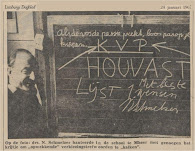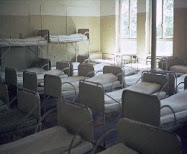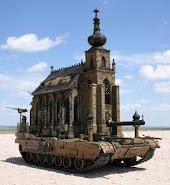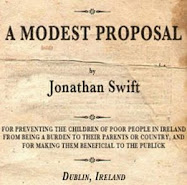zondag, september 30, 2007
priester op internet
By SHIRLEY RAGSDALEREGISTER RELIGION EDITOR
September 30, 2007
http://desmoinesregister.com/apps/pbcs.dll/article?AID=/20070930/NEWS/709300330/1045/LIFE05
1 Comment
Louis Stroschein Jr., 31, remains in the Black Hawk County Jail since his Sept. 13 arrest.Police say the well-regarded Catholic school principal from Harlan drove to Waterloo to meet a teenage girl - his Internet chat friend - and take her to a motel for sex.Instead, he was met by Lt. Kent Smock of the Black Hawk County Sheriff's Department, and arrested on felony charges of enticing away a minor.Stroschein's wife has taken their children and left Harlan, school officials said. No one else has stepped forward to help the principal, who has been suspended from his job without pay, to make bail. He is being held on $100,000 bond. He is scheduled to be arraigned Oct. 8.Officials with the Diocese of Des Moines, like people in Harlan, were stunned by the charges against Stroschein. He had passed the Catholic Church's rigorous new background check and had taken child protection training required of every employee. He came highly recommended from his previous job at St. Anthony Catholic School in Dubuque."There were no red flags anywhere," said Luvern A. Gubbels, Des Moines Diocese superintendent of schools, who said he "was just floored. I would never, never expect it."Stroschein's arrest is the latest in a string of similar cases being filed in Iowa.Last week, the Iowa Supreme Court revoked the license of Michael Blazek, an Iowa lawyer, who is serving a 19-year sentence after being convicted in February 2004 of attempted enticement of a minor for sex. On Aug. 8, a Des Moines County jury found Michael Ray Evans guilty of enticing away a minor after he attempted to have a sexual encounter with someone he thought was a 13-year-old girl he met in an online chat room.By several measures, the prevalence of online predators is increasing, despite the risk of being caught."You would think (Stroschein) would see NBC's 'To Catch a Predator' like everyone else and behave himself," said Dr. Donald Black, professor of psychiatry at the University of Iowa Carver College of Medicine and author of "Bad Boys, Bad Men.""Clearly, intelligence and education don't have a lot to do with it," Black said. "These men respond to very powerful urges without seeing that their behavior may have bad consequences."Officials with the Diocese of Des Moines, troubled by a child sexual abuse scandal that has battered the church since 2002, believed they have done all they can to protect children in its churches and schools.All people who have contact with children, from volunteers to teachers and administrators, must undergo criminal background checks and child abuse training. They all sign a code-of-conduct agreement. Yet, 6,000 criminal background checks later, Stroschein slipped through.The arrest sent a ripple of disbelief and shock through Shelby County Catholic School, the pre-K-8 school where he had been principal for two years. People are flabbergasted at the allegations against Stroschein, who was admired as an educator and prominent in the community."It was like getting kicked in the stomach," said the Rev. Robert Hoefler, pastor of St. Michael parish in Harlan."He came to us with an excellent record from the Archdiocese of Dubuque," said Gubbels, the diocese superintendent. "Since we started the program in 2003, we've done more than 6,000 background checks and we've only come up with a few hits. Most of those were things like DUI, not child-related crimes."Experts said that the reasons someone becomes an Internet predator are complex, but almost universally, those who participate in the behavior think they're going to get away with it."We don't have any idea what would compel a person like Stroschein to do something like this, but it is an increasingly common problem," said Smock, of the Black Hawk County Sheriff's Department. "We've made 51 arrests in the last 25 months. It's really sad."We have a policy of proactive investigation," Smock said. "I can go online and pretend to be a young boy or girl and monitor things. If I go to a chat room, easily in 30 minutes a half-dozen people will talk to me inappropriately, by their own hand. The conversations are nothing I initiated."Internet chat rooms make pursuing predatory behavior easier, the experts said. They also give perpetrators a false sense of security.Someone like Stroschein doesn't fit the stereotype of a sexual predator, according to Rachel Bandy, assistant professor of sociology and criminal justice at Simpson College."It's the reason they're able to fly under the radar and get away with it," Bandy said. "I'm never surprised when a person in a position of power uses it to create a victim pool. A school principal would be aware of youth culture, how to speak to youth and groom youth to make them comfortable."Black and other mental health professionals said almost all Internet predators are men."But people in all walks of life, all levels of society, engage in this behavior," Black said. "People I have seen and treated in the past who exhibit this behavior respond to very strong sexual drives."They make decisions and choices that to us are not rational, which puts them at risk for arrest and prosecution," Black said.Shelby County Catholic School teachers and administrators have urged parents to listen to their children and report any suspicions to local police or the Black Hawk County sheriff. To this point, diocesan officials, educators, and law enforcement officers have received no other allegations of inappropriate sexual behavior by Stroschein.
zondag, september 23, 2007
Documents Show Mexican, U.S. Church Leaders Helped Accused Priest
By Jonathan RoederCatholic OnlineSeptember 13, 2007http://www.catholic.org/national/national_story.php?id=25342Mexico City mdash;
Members of the Survivors Network of those Abused by Priests released documents they say prove that top Catholic officials in Mexico and the United States sought to help a Mexican priest accused of sexual abuse evade the law.
In response, a legal representative of the Mexico City Archdiocese and a spokesman for the Los Angeles Archdiocese denied the allegations and accused SNAP of trying to win its case in the media, rather than in the courts. The documents, made public in Mexico City Sept. 11, include letters between Mexico City Cardinal Norberto Rivera Carrera and Los Angeles Cardinal Roger M. Mahony, along with Mexican police reports involving Father Nicolas Aguilar Rivera, who has been accused of abusing minors in both countries.
Also included were transcripts of Cardinal Rivera's declaration before the Superior Court of the State of California in Los Angeles Aug. 8. Many of the files originally were turned over to the court by Cardinal Rivera as part of his defense against charges of negligence, intentional infliction of emotional distress, civil conspiracy and sexual battery.
Joaquin Aguilar, a former altar boy, filed those charges against Cardinal Rivera and Cardinal Mahony in September 2006. Joaquin Aguilar, who says he was raped by Father Aguilar in Mexico City in 1994, charged the priest with sexual battery.
Joaquin Aguilar and Father Aguilar are not related.
In an interview, Eric Barragan, SNAP's director for Mexico and Latin America, said the documents revealed "an institutional cover-up" in the Catholic Church.
"We have some strong examples here," he said. "In these documents, priests, bishops and cardinals are communicating with each other in a secret code used by the Catholic Church to say that a priest has problems of pedophilia."
Joaquin Aguilar and SNAP say that Cardinal Rivera knowingly helped Father Aguilar escape allegations of sexual abuse of minors in Mexico by sending him to Los Angeles in 1987. Father Aguilar had been accused of abusing minors in his home state of Puebla, but formal charges were never filed.
Cardinal Rivera's representatives said there was no proof of abuse at the time Father Aguilar was sent to Los Angeles and that Cardinal Mahony was warned of Father Aguilar's problems.
They have also argued that the Los Angeles court has no jurisdiction over Cardinal Rivera.
In a letter to Cardinal Mahony dated Jan. 27, 1987, Cardinal Rivera, who was at the time bishop of Tehuacan, Mexico, wrote that due to "family and health reasons," Father Aguilar wished to relocate to Los Angeles for a year.
Cardinal Rivera's representatives have said that "family and health reasons" were code words used among the clergy to refer to sexual problems.
Nineteen felony counts of sexual abuse of minors were filed against Father Aguilar while he was in Los Angeles, but he fled the country and was never extradited by Mexican authorities.
After Los Angeles police opened a case against Father Aguilar in 1988, Cardinal Mahony wrote to Cardinal Rivera saying he was not familiar with any code words, and had he known the priest had sexual problems Father Aguilar would not have been accepted in the Los Angeles Archdiocese.
In another letter, dated March 23, 1987, Cardinal Rivera wrote to Cardinal Mahony that Father Aguilar's departure from Mexico was the result of "a very delicate physical aggression."
"It is suspected that behind the conflicts that caused this physical aggression there are homosexual problems," Cardinal Rivera wrote.
"The accusations of homosexuality against the priest are various, but none have been proven. It has remained at the level of accusations and suspicions."
Cardinal Mahony has said he never received this letter and requested a copy several times.
SNAP has called into question the document's authenticity.
Armando Martinez, head of Mexico's College of Catholic Lawyers and a representative of the Mexico City Archdiocese, said there was no proof that Cardinal Rivera had committed any crime and that SNAP and Joaquin Aguilar's aim was to "create a war in the media."
"It's evident that the (Los Angeles Superior Court) has no jurisdiction over Mexican citizens, and much less regarding supposed events that, if (they) happened, would have happened on Mexican territory," Martinez said in statements to CNS.
Tod Tamberg, director of media relations for the Archdiocese of Los Angeles, said Sept. 12: "There is absolutely no credible evidence whatsoever, when looked at objectively, that implicates Cardinal Mahony in any cover-up. It's well known that SNAP makes outrageous statements because they know the press will print them, but we have said, and the record shows quite clearly, that Cardinal Mahony was completely unaware of any problems with this priest when he came to Los Angeles.
"When reports were made of misbehavior, he (Father Aguilar) was immediately removed from ministry. He said he was going to stay with family, and he fled the country instead. And the documents also show that Cardinal Mahony was angered by that and that he wrote to the then-bishop in Mexico, informing him of the charges and asking that he be sent back to face justice."
dinsdag, september 11, 2007
Hele dure cover -ups: kan de collecteschaal weer even door
Statement: San Diego Settlement
With the news of the San Diego settlement, we take a twin breath of both active concern and sadness.
First, in solidarity and with concern for them, we salute the courage of the survivors of the San Diego settlement and their steadfast dignity when they were used as ploys and pawns in a game of bankruptcy brinkmanship.
We express unremitting sorrow that our Church had to be pushed by the civil authorities into the arena of justice.
We eagerly hope the push extends into a wide arc of openness of financial accountability as a sign of respect for those who paid the diocese’s bills for generations and those who continue their financial contributions to the Church.
Settlements always have up and down sides. Victims do not have to go through the trauma of telling their stories in court and yet their stories remain untold, and in many quarters disbelieved, because they were not able to tell their stories in open court.
We vigorously urge all parties to disclose the documents in this settlement and to disclose them as quickly as possible. The truth lives in the documents. We cannot shield our eyes from it any longer.
DIOCESE IN TURMOIL
Church's path to penance is chided
Legal experts fault bankruptcy option
By Greg Moran and Mark Sauer
UNION-TRIBUNE STAFF WRITERS
September 10, 2007
It was February, just a handful of days before the start of Lent, the most sacred time of the year for Roman Catholics around the world. But in San Diego, leaders of the Catholic diocese were preoccupied with a looming crisis in the secular world of the courts:
Settle 144 cases of child sexual abuse by clergy for perhaps $1 million or more each. Or go to trial, where details of abuse and efforts over several decades to cover it up – as alleged in court documents – would come to light.
San Diego Catholic Bishop Robert Brom and his advisers chose a third way: Chapter 11 federal bankruptcy protection.
It was the best method, Brom would tell his nearly 1 million parishioners, to provide “fair and equitable compensation for all of the victims of abuse without disrupting the core mission of the church.”
Now, more than six bruising months later, the decision is widely seen as nearly disastrous for the diocese.
Legal experts who have followed the sexual abuse crisis in Catholic dioceses across the country said the bankruptcy process – intended to dispose of legal claims in a calm, ordered way – turned into a tumultuous, embarrassing ordeal for the church.
“This was to my mind the clumsiest bankruptcy of all the dioceses that have gone that way,” said Charles Zech, an economics professor who has followed the clergy abuse crisis from Villanova University, a Catholic school near Philadelphia. “They didn't gain a thing. And they lost a lot of credibility.”
Moreover, those involved in negotiations that led to Friday's announcement of a $198.1 million settlement of the lawsuits said Brom and the diocese would have been far better off financially if they had settled seven months earlier.
Several attorneys pursuing lawsuits against the diocese said their clients would have settled for as much as $50 million less than the San Diego diocese and its insurers will ultimately pay had they avoided bankruptcy and settled in February.
But chief diocese attorney Micheal Webb strongly disputed that, saying the $50 million figure was “very incorrect.”
Webb conceded that a February settlement would have been less costly, especially when the bills for the bankruptcy filing – already more than $5 million with more invoices to come – are factored in. The diocese is responsible for attorneys' fees for both sides in bankruptcy court.
After Friday's settlement, Webb reflected on the decision to seek Chapter 11 protection, concluding that the bankruptcy filing was worthwhile.
“If you look at the Chapter 11 from the beginning, it was progressing very well,” Webb said. “We were on track to conclude the process.
“Granted, the order to show cause on why the case should not be dismissed was a setback.”
In fact, federal Judge Louise DeCarl Adler was on the verge last week of kicking the diocese's case out of bankruptcy court.
Webb downplayed that threat, as well as Adler's earlier order to send 42 of the abuse lawsuits back to state court for trial, as being high-pressure prods to reach a deal.
“The settlement was not a direct result of (Adler's actions),” said Webb, who was chastised by Chief U.S. District Judge Irma Gonzalez last month for misstating an order she made in the case during an interview published in The San Diego Union-Tribune.
“I agree, there was some pressure on the diocese, but it was not only that,” Webb said. “We had an energetic and highly intelligent judge (federal Magistrate Judge Leo Papas) who kept working with us and was able to do what other mediators could not over the previous years.”
Terry Giles, a Houston attorney representing 150 clergy-abuse plaintiffs in California, including 13 in San Diego, also lavished praise on Papas and Adler for bringing the case to conclusion.
But Giles took issue with Webb's assessment of the benefits of the bankruptcy filing.
“The reason Mr. Webb is taking the position that this bankruptcy was a good thing is that he has been the architect of all the scorched-earth actions taken by this diocese up to now,” Giles said.
“This case never would have settled if it hadn't been for Bishop Brom finally taking the ball away from Mr. Webb,” he said. “They got nothing out of this bankruptcy except to be kicked around by the judge in court and humiliated in the press.”
The diocese filed for bankruptcy Feb. 27, one day before the first of the lawsuits was set for trial in San Diego Superior Court.
The bankruptcy immediately halted all litigation, a plus for the church. But almost from the start, one misstep after another dogged the diocese in bankruptcy court.
Formal reports of all church assets, required by federal law, were deemed incomplete and had to be amended four times.
Adler, whose handling of the case was widely praised by lawyers and experts, called the diocese's accounting system “byzantine.” She ordered a forensic accountant to examine the nearly 900 bank accounts for the diocese.
That turned into a crucial event in the case, experts said.
A report by financial expert R. Todd Neilson, a former FBI agent, found that the diocese had claimed the assets of its 98 parishes as its own in applications to banks and bond markets. But in bankruptcy court, the church asserted the parish funds were separate and could not be tapped for any settlement.The diocese also was not reporting accurate values for its properties, failed to keep parishes from hiding money from the court and was not properly accounting for all its money, Neilson found.
Several bankruptcy experts said the diocese might not have been prepared for the kind of scrutiny its internal operations would receive once it moved from the insular world of the church to the wide-open forum of federal court.
“In church law, the bishop is in complete control,” said Fred Naffziger, a business law professor at Indiana University South Bend who has studied the four other Catholic bankruptcies that proceeded the San Diego filing. “So they exist in this environment where the bishop is never questioned. And sometimes they have difficulty when they have to shift into an environment where they have to disclose things.”
Scott Ehrlich, a professor at California Western School of Law in San Diego, said he was optimistic at first that the Chapter 11 filing would work well for the diocese. He soon changed his mind.
“They had an excellent opportunity to begin the whole settlement process back in February, but they did not do that,” he said. “They just used the bankruptcy process to prolong things.”
Ehrlich and others said Adler's firmness was a key factor in resolving the case.
“I give her an A-plus,” he said. “No bankruptcy judge likes to have debtors who are not forthright and not cooperative. The whole nature of the proceeding is when you put yourself in front of the court, you have to be honest and cooperative.”
As painful as it was, Naffziger said, one good thing came out of the process: the settlement of all the lawsuits. That should not be overlooked, he said, even though it will be a “tremendous financial blow to the diocese.”
That high cost will be felt by Catholics in San Diego, the nation's largest diocese to declare bankruptcy, and across the nation.
“They kept shooting themselves in the foot,” mused Zech, the economics professor. “They hurt the credibility of every diocese in the country.”
Greg Moran: greg.moran@uniontrib.com
Caritas International voert campagne tegen honger
Geplaatst door Theo Borgermans 10 sep '07
BRUSSEL (RKnieuws.net) - Van 11 tot 22 september voert Caritas International campagne tegen de honger onder het motto ’Honger is een noodloot. U kunt er iets aan doen!’. De katholieke internationale hulporganisatie focust op drie prioritaire programma’s in DR Congo, Ethiopië en Niger
Honger is weliswaar een complex probleem, maar oplosbaar als we de verschillende oorzaken aanpakken, stelt de organisatie. Caritas International heeft dan ook een breed gamma van hulpprogramma’s op verschillende domeinen (landbouw, gezondheid en onderwijs), aangepast aan de lokale context. ....verder lezen
 foto:James Nachtwey, Hunger.
foto:James Nachtwey, Hunger.Nachtwey: "I have been a witness, and these pictures are my testimony. The events I have recorded should not be forgotten and must not be repeated. "
Armen en misdeelden zoeken water en het is er niet, hun tong is door dorst verdroogd. Ik, de heer, zal hen verhoren; Ik, de God van Israël, verlaat hen niet.
Op kale plekken laat Ik beken ontspringen, en bronnen midden in de vlakten. Van de woestijn maak Ik een aterplas, het dorre land in de woestijn wordt een waterader.
Ik plant ceder en acacia, mirte en olijf; Ik zal in het dorre land cypressen zetten, olmen en buksbomen, alles bijeen.
Jesaja 41,17-20
zondag, september 09, 2007
En de volgende miljoenenschikking: 11 zaken, 8 priesters en 15 miljoen$

De ochtendbries heeft geheimen
en wil ze kwijt aan jou.
Ga niet meer slapen.
Vraag wat je werkelijk wilt.
Schaduwen lopen heen en weer over de drempel
waar de twee werelden elkaar raken.
Daar is het gat van de deur,
hij staat open voor jou.
Ga niet meer slapen.
Rumi (1207 – 1273)
The "agreement in principle" is San Bernardino's share of a massive $198 million settlement by the Diocese of San Diego to resolve the 144 cases it faces.
Under the agreement, the diocese does not admit guilt in any of the 11 cases, which involve eight priests.
 "In one way, we may think that there is some conclusion to this sad and horrible part of the history and the life of the church of the United States and in the Diocese of San Bernardino," Bishop Gerald Barnes read from a prepared statement.
"In one way, we may think that there is some conclusion to this sad and horrible part of the history and the life of the church of the United States and in the Diocese of San Bernardino," Bishop Gerald Barnes read from a prepared statement."However, healing is a continuous process, and we beg God to help us on this path."
Church officials announced the settlement on Friday afternoon at a press conference at the Pastoral Center in San Bernardino.
The bishop read a three-minute statement and then abruptly left the press conference, leaving his spokesman the Rev. Howard Lincoln to answer any questions from the media.
A significant amount of the settlement will be paid by insurance, with the balance to be funded by diocesan reserve funds, assets and possibly by financing, church officials said.
The diocese, with more than 1.2 million Catholics, also does not anticipate the agreement will result in any staff reductions or the closure of any diocesan facilities.
"We will be able to continue the overall mission of the church without a reduction in services," Lincoln said.
The settlement averages about $1.4 million per claimant, which is slightly higher than what plaintiffs received in other California settlements, according to the Associated Press.
 "We shouldn't have had to go through all this," said Betty Schneider, 62, of Temecula, who claimed she was molested when she was 10 and a member of her church choir. "I have grandkids the same age I was, and I hope all this helps kids to be protected better than we were protected."
"We shouldn't have had to go through all this," said Betty Schneider, 62, of Temecula, who claimed she was molested when she was 10 and a member of her church choir. "I have grandkids the same age I was, and I hope all this helps kids to be protected better than we were protected." the millstone-project
Weekly donations made by parishioners will not be used to pay off the settlement, according to a diocesan statement.
The settlement resolves all but five cases, which were filed after 2003, facing the San Bernardino diocese.
Of the priests involved in the 11 settled cases, three are out of the ministry, one is incarcerated and one is retired out of state.
Additionally, one is deceased, and two are still in active ministry, church officials said.
The diocese does not believe the allegations against the two priests who are in active ministry are credible, Lincoln said.
San Bernardino and Riverside counties were part of the Diocese of San Diego until November 1978.
The Diocese of San Diego agreed to assume liability for cases involving alleged abuses that took place before San Bernardino became a separate diocese.
Church officials outlined several efforts, such as fingerprinting, training, a toll-free hot line, counseling and monthly retreats to victims to restore faith and prevent further abuse of children.
"The Diocese of San Bernardino will continue to create a safe environment in our parishes and throughout the diocese, to educate children and parents to recognize dangerous situations and behaviors, and to work diligently to heal and care for those who have been abused by ministers of the church and others," Barnes said.
The agreement with the San Diego diocese came after two days of intense talks before a federal magistrate judge between the diocese, attorneys and some alleged victims, according to The Associated Press.
It caps more than four years of negotiations in state and federal courts and comes six months after the diocese abruptly filed for bankruptcy protection just hours before the first of 42 lawsuits alleging sex abuse was scheduled for trial.
The diocese has been under pressure to reach a settlement.
It sought to shield its assets by declaring bankruptcy, but a judge recently threatened to dismiss the diocese's case if an agreement with sex-abuse plaintiffs was not struck by Tuesday, the AP reported.
The San Diego diocese had initially offered about $95million to settle the claims as part of its bankruptcy reorganization plan.
Claimants had sought about $200 million.
The Los Angeles Archdiocese settled 508 cases for $660million in July, two days before jury selection was scheduled to begin in the first of 15 trials involving 172 abuse claimants.
The Diocese of Orange agreed to settle 90 claims for $100million in 2004 after a judge promised to set trial dates and begin the discovery process if settlement talks collapsed.
With nearly 1million Catholics and holdings throughout San Diego County, the diocese is by far the largest and wealthiest of the five U.S. dioceses to have filed for Chapter 11 bankruptcy protection under the shadow of civil claims over sexual abuse.
Dioceses in Spokane, Wash.; Portland, Ore.; and Tucson, Ariz.; have already emerged from Chapter 11 bankruptcy protection. The Davenport, Iowa, diocese, which faces claims from more than 150 people, is still in proceedings.

The Associated Press contributed to this report.
Contact writer Mike Cruz at (909) 386-3880 or via e-mail at mike.cruz@sbsun.com.
En alweer een prachtig PR praatje en 2 priesters als knap kostbare herders nog steeds aan het werk. Alles liever dan een rechtszaak waarbij de informatie mbt die kerkelijke hierarchie wel op tafel komt.
Dan maar liever gelovigen die geloven dat hun "herders" kennelijk niet helemaal goed snik miljoenen over hebben en dus schikken.
En die slachtoffers?
 Fasinerend hoe die in alle openheid steeds meer blijken te kunnen kiezen niet opnieuw slachtoffer te worden, van verzekeringen die de rechtszaken nodig hebben, of die kerk die die rechtszaken wenst te voorkomen,
Fasinerend hoe die in alle openheid steeds meer blijken te kunnen kiezen niet opnieuw slachtoffer te worden, van verzekeringen die de rechtszaken nodig hebben, of die kerk die die rechtszaken wenst te voorkomen,  maar hun eigen doelen houden.
maar hun eigen doelen houden.Er is veel bereikt.
Er is heel veel van door en met elkaar geleerd!
"wacht maar", zei Thomas Doyle, een paar jaar geleden, "wacht maar, tot Californie naar buiten komt"
"....I hope all this helps kids to be protected better than we were protected."
zaterdag, september 08, 2007
Weer een schikking ter voorkoming van rechtszaak: $198,100.000 Bisdom San Diego
By Tony Perry, Los Angeles Times Staff Writer
September 7, 2007
SAN DIEGO -- After years of negotiations, the Roman Catholic Diocese of San Diego today announced a $198.1-million settlement with plaintiffs who said they were sexually abused by priests.
The agreement comes after several years of at times bitter negotiations between attorneys for the diocese and for 144 people who filed suit, claiming they were abused. At the end, negotiations were overseen by a federal judge.
The settlement came two months after the Roman Catholic Archdiocese of Los Angeles announced it was settling more than 500 abuse cases for a total of $660 million.
The settlement is more than twice what the San Diego diocese offered before filing for bankruptcy protection in February, and is in line with the average settlement of about $1.3 million per victim in Los Angeles.
For months, San Diego diocese lawyers insisted the diocese did not have the insurance coverage or assets to make a larger settlement without crippling the church's spiritual and social-service efforts.
"This is a huge victory for brave, deeply hurt victims," said David Clohessy, national director of the Survivors Network of Those Abused by Priests. "Because of their courage, kids are safer today. Without their courage, dozens of predators might still be in parishes."
Asked about the dollar figure, Clohessy said, "No settlement is equitable. No amount of money can restore shattered dreams or stolen childhoods."
As part of its bankruptcy filing, the San Diego diocese had offered a settlement of about $95 million. But claimant attorneys protested that the figure was insultingly low and that the diocese had purposely underreported its financial worth.
A U.S. bankruptcy judge had threatened to throw out the diocese's bankruptcy filing as "forum shopping" and accused the diocese of trying to use the bankruptcy process to settle with victims for as little as possible.
Judge Louise De Carl Adler said that the diocese settlement offer of $95 million was "far below the historic statewide average" of payments made to victims of clerical abuse. She also criticized the diocese's financial record-keeping as Byzantine.
Adler ruled two weeks ago that 42 of the lawsuits could go to trial, which was seen as a prod to the diocese to settle.
The diocese, with nearly 1 million Catholics, had filed for bankruptcy protection on the eve of the first such trial.
Filing for bankruptcy protection put the lawsuits on hold; claimants said the diocese was trying to shield Bishop Robert Brom from testifying.
"We pray that this settlement will bring some closure and healing to the years of suffering experienced by these victims," Brom said in a statement.
tony.perry@latimes.com
washingtonpost:
Diocese Settles Abuse Claims for $198M
SAN DIEGO -- The Roman Catholic Diocese of San Diego agreed Friday to pay nearly $200 million to 144 people who were sexually abused by clergy members, the second-largest payment since the U.S. abuse scandal erupted five years ago.
The $198.1 million agreement capped more than four years of negotiations in state and federal courts and came six months after the diocese filed for bankruptcy protection just hours before the first of 42 lawsuits was scheduled for trial.
Victims expressed relief that a settlement was reached _ but also anger that it took so long.
"They knew all along that I'd been molested, so to put me through this is unconscionable," said Michael Bang of Atlanta.
The diocese had sought to protect its assets in bankruptcy court, but quickly found it a rough venue before a judge who criticized the church for bookkeeping practices, undervaluing real estate holdings and failing to disclose facts.
U.S. Bankruptcy Judge Louise DeCarl Adler recently threatened to dismiss the case if an agreement was not struck by Tuesday in a last-ditch round of talks before a federal magistrate judge. Several victims also participated in the negotiations.
The San Diego diocese initially offered about $95 million to settle the claims. The victims were seeking about $200 million. verder...
norberto rivera

Como un gesto de fe y de la tradición de la Iglesia, el Card. Norberto Rivera pide la bendición sacerdotal de los nuevos sacerdotes.
A police report obtained through an unusual deposition of Mexico's most influential Roman Catholic clergyman casts doubt on his claim that he didn't know that a priest he had transferred to Los Angeles was suspected of pedophilia. The priest later fled Southern California after he was charged with sexually abusing eight boys.
Cardinal Norberto Rivera, who heads the Mexico City archdiocese, has testified that he didn't know the Rev. Nicolas Aguilar was suspected of sexually abusing children when he wrote a January 1987 letter of introduction for him to Cardinal Roger Mahony of Los Angeles, who was then archbishop.
But a 1986 police report found in a file at the offices of the diocese of Tehuacan, Mexico, where Rivera was bishop at the time, detailed allegations from parents that Aguilar had boys sleeping with him in the parish. The report was part of an investigation into Aguilar's brutal beating, possibly at the hands of a mob, a few days earlier.
Aguilar served in Los Angeles for less than a year before he fled to Mexico in January 1988 to escape what ultimately became 19 felony counts of sexual abuse of a child. He has never been tried on the charges, and his whereabouts are unknown.
The police report was among the documents filed last week in a California Superior Court in connection with a lawsuit that accuses Mahony and Rivera, two leading church figures, of conspiring to cover up Aguilar's actions in both countries. The lawsuit is one of roughly 500 cases against the Los Angeles archdiocese alleging abuse by priests. The archdiocese agreed in December to pay $60 million to accusers in 45 cases.
In a court filing last March, Rivera said he was unaware that Aguilar had exhibited predatory behavior toward children, though he did know that the priest was suspected of homosexuality with other adults. Rivera said he had signaled Mahony that Aguilar had problems through coded language in the letter of introduction.
Mahony, who heads the largest archdiocese in the U.S., acknowledged receiving the letter but said he didn't understand that it was coded. He said he never received a subsequent letter detailing allegations of homosexuality. U.S. lawyers went to Mexico City to question Rivera, whose lawyer said the cardinal had never seen the police report.
vrijdag, september 07, 2007
Christenlegioen op oorlogspad: Outspoken Ex-Priest Sued Over Documents
By Daniela Deane
Washington Post Staff Writer
Thursday, September 6, 2007;
Former priest John Paul Lennon says the Legion of Christ is a dangerous and ultra-secretive cult that still idolizes its founder even though the spiritual leader was sanctioned by the Vatican after years of sexual abuse allegations.
The Legion accuses the Alexandria man of distributing stolen property and "malicious disinformation" about a fast-growing Roman Catholic Church order with tens of thousands of followers worldwide.
The argument is unfolding in Alexandria Circuit Court in a lawsuit the Legion filed last month that seeks to block Lennon, a Legion member for 23 years, from disseminating on a Web site letters and documents it says are the order's private property and intended only for internal use.
Some internal documents chronicle the conservative group's strict rules of conduct, including directives on how a legionary, as the order's members are known, must butter his bread, part his hair or sit in a chair. The documents also include the group's "private vows," which say that members must never criticize the order and must report anyone who does.
Under a recent court order, Lennon must turn over any Legion property by Sept. 14, including documents, computer disks and CDs.
Besides Lennon, the Legion is suing Regain Inc., the corporation that owns http://www.regainnetwork.org/, a Web site critical of the Legion. Lennon is its president. Other former Legion members and relatives and friends of former Legion members are involved in the corporation and the Web site, Lennon said.
Lennon, 63, a child and family therapist in Arlington, recently found a lawyer to represent him in the suit, which he said came out of the blue. He said the deep-pocketed order, which he left more than 20 years ago because he had grown disillusioned, is trying to silence former members and teach him a lesson.
"They're also trying to scare anybody else who would dare to share these documents with the public," he said. "It's the Alexandria witch hunt instead of the Salemwitch hunt. It's like a 21st-century Inquisition."
Jim Fair, a Chigaco-based spokesman for the order, couldn't disagree more.
"Regain has some materials that belong to the Legion and that they are using," he said. "They were not granted use of them, and we'd like them to stop doing that." Attorneys for the order declined to comment.
In the lawsuit, the Legion is also asking for the identities of individuals writing on the Regain site and on a Web discussion board, http://www.exlegionaries.com/, that was once affiliated with it. Regain severed ties with the discussion board this year after pressure from the Legion, Lennon said.
Many of the documents at issue are private letters written by the group's founder, the Rev. Marcial Maciel Degollado. Some of the letters have been posted on the site and the discussion board.
Last year, Pope Benedict XVI took disciplinary action against Maciel after a long, on-again, off-again investigation into allegations of sexual abuse. Maciel is no longer supposed to celebrate Mass in public, give lectures or make other public presentations.
Maciel, 87, is the founder and patriarch of the Legion of Christ, a worldwide order of more than 750 priests and 2,500 seminarians, and of Regnum Christi, an affiliated movement of lay people that claims 70,000 members around the world. The U.S. headquarters for the order is in Connecticut.
Both groups are built around the aging priest's "charism," a church term for exceptional gifts and mission. Maciel, who was close to Pope John Paul II and is venerated by many Catholics, stepped down as head of the Legion after last year's papal sanction. He then left Rome and moved to his home town of Cotija, Mexico .
Complaints of sexual abuse against Maciel came to light in the 1990s, when nine former members of the Legion, including several priests, alleged that Maciel had molested them when they were young seminarians, from the 1940s into the 1960s.
The National Catholic Reporter newspaper, citing Vatican sources, reported last year that the number of accusers who had come forward was "more than 20, but less than 100." Lennon said the number of victims is much greater than 100.
Lennon said turning over any documents he has would not stop them from being circulated. He denies that any were obtained illegally.
"They have lots and lots of money," Lennon said of the Legion. "I don't have any. The idea is to drag this on in such a way that it will bleed us to death." Lennon is soliciting donations for his legal defense on the site.
Jason Berry, who co-wrote a 2004 book and produced a forthcoming documentary film about the Maciel case, both titled "Vows of Silence," called the group's founder "arguably the greatest fundraiser in the history of the modern church." He's also "one of the worst pedophiles in the history of the church," Berry said.
On the two Web sites, former members of the order discuss the sexual abuse allegations that drove Maciel out of Rome. But Lennon said most members of the order would not even be aware of the allegations.
"They can only watch certain television programs, they don't have radios and they can't use the phone without permission from their superiors," he said. He added that phone calls are monitored.
"The Legion of Christ is trying to shut down Regain, which is a clearinghouse for information on what the Legion is really about," Berry said. "It shows the group's extraordinary hubris in thinking they can crush an opponent by trampling on the First Amendment."
Staff writer Alan Cooperman contributed to this report.
donderdag, september 06, 2007
woensdag, september 05, 2007
Christuslegioen probeert vrijheid van ex-leden aan te pakken

The controversial catholic order known as the Legion(aries) of Christ is suing ReGAIN, an organization comprised of former members of the Legion and its Regnum Christi movement.
According to a ReGAIN news release, the Legion of Christ will appear in the Circuit Court of Alexandria, Va., on Aug. 22 to demand a pre-trial seizure of the organization's property, including computers, files and e-mails.
"This is a transparent effort to silence a group that has effectively revealed damaging evidence about the Legion," the release states.
"The ReGAIN organization ... has been forthrightly dedicated to helping others understand [the Legion] and to recover from the widely-documented psychological trauma associated with membership."
The release continues:"Stating the damage to the Legion of revealing these 'proprietary materials, including letters and other documents compiled by Legion members intended only for internal dissemination and discussion,' a bond of $1.5 million has been offered for the defendants' files.
ReGAIN is additionally charged to reveal all contacts with the Legion, past and present; to reveal the true identity of anonymous posters on a discussion board; and to remove all references to the Legion's constitution, which the Legion doesn't want publicly accessible."Stay tuned...
Related links:http://www.newoxfordreview.org/dossier.jsp?did=dossier-legionarieshttp://www.life-after-rc.com/2007/08/one-vow-to-rule.html
maandag, september 03, 2007
Duitsland: het inmiddels al zo bekende verhaal, nu in het bisdom Regensburg
Pedoschandaal in bisdom Regensburg
Hilversum (Van onze redactie) 2 september 2007 -
Het Beierse bisdom Regensburg ligt sinds kort onder vuur, omdat een voor misbruik veroordeelde priester opnieuw in de fout zou zijn gegaan. De betreffende geestelijke was na zijn veroordeling weer tot pastoor van een parochie benoemd. Dat meldt het Duitse persbureau DPA.
Misdienaar
De 39-jarige priester werd deze week aangehouden op beschuldiging van het seksueel misbruiken van een minderjarige misdienaar.
In 2000 was hij voor hetzelfde vergrijp tot een voorwaardelijke gevangenisstraf van één jaar veroordeeld. Nadat hij een psychotherapeutische behandeling had ondergaan, werd hij benoemd tot pastoor van een parochie. Tussen 2003 en 2006 zou het misbruik herhaaldelijk hebben plaatsgehad. Het openbaar ministerie zegt over bewijzen te beschikken. De pastoor werd in hechtenis genomen omdat het risico bestond dat hij het land wilde ontvluchten.
'Ook bisdom voor gerecht'
Johannes Heibel, leider van een hulpgroep voor misbruikte kinderen, vindt dat, zodra de schuld van de priester vaststaat, ook het bisdom voor het gerecht moet worden gesleept. "Het is onverantwoordelijk om mensen toe te vertrouwen aan dergelijke priesters", aldus Heibel, hoofd van de vereniging Initiative gegen Gewalt und sexuellen Missbrauch an Kindern und Jugendlichen. "Deze zaak toont aan dat therapie voor zedendelinquenten niet adequaat kan garanderen dat ze veilig zijn."
Bisschop MüllerBisschop Gerhard Müller van Regensburg zegt dat hij geschokt is door de arrestatie. "Mogelijke slachtoffers van de daad van de priester bieden we menselijke, therapeutische en pastorale hulp aan."
Parochianen zijn boos op Müller omdat hij hen voorafgaande aan de benoeming van de pastoor niet had geïnformeerd over het verleden van de geestelijke. Volgens een woordvoerder van de Duitse bisschoppenconferentie ging de herbenoeming in tegen de kerkelijke richtlijnen.
Kaplan wird nach Kindesmissbrauch Pfarrer
26. Juli 2007
Ein wegen Kindesmissbrauchs verurteilter katholischer Priester ist im Bistum Regensburg als Gemeindepfarrer tätig. Vor acht Jahren befand ihn ein Gericht für schuldig, zwei neun und zwölf Jahre alte Brüder im niederbayerischen Viechtach belästigt zu haben.
Im Jahr 2000 wurde der Mann wegen des Missbrauchs des älteren Buben per Strafbefehl zu einem Jahr Freiheitsstrafe auf Bewährung verurteilt. Das Ordinariat hält den Sexualstraftäter auf Grund von psychologischen Gutachten für geheilt. „Erst nachdem gesichert war, dass weder von therapeutischer noch juristischer Seite Bedenken oder Auflagen bestanden, erfolgte der Einsatz in der Pfarrseelsorge“, erklärte das Ordinariat in einer Stellungnahme.
Der damalige Kaplan sei unmittelbar nach Bekanntwerden des Vorfalls aus der Gemeinde abgezogen worden und habe sich für mehr als drei Monate in stationäre therapeutische Behandlung begeben, erklärte das Bistum. Danach habe der Mann vier Jahre lang eine begleitende Psychotherapie gemacht. Sowohl sein Therapeut als auch ein weiterer Sachverständiger haben laut Bistum bestätigt, dass ein Rückfall des Sexualstraftäters nicht zu erwarten sei.
Zur Osterzeit an den Brüdern vergriffen
Nach einem Zeitungsbericht hatte sich der Priester in der Osterzeit 1999 an den Brüdern im Viechtacher Kolpinghaus vergriffen. Dabei soll er die beiden Buben unsittlich berührt und am Geschlechtsteil des älteren Bruders manipuliert haben. Die damals elf Jahre alte Schwester hatte die Vorgänge beobachtet und den Eltern davon erzählt.
Doch als die Mutter den Kaplan zur Rede stellte, leugnete er den Missbrauch. Der Pfarrer der Gemeinde aber glaubte der Mutter.
Nach dem Klinikaufenthalt wurde der Mann während seiner ambulanten Therapie in einem Altenheim eingesetzt. Im September 2004 wurde ihm die Leitung einer Pfarrgemeinde im Bistum Regensburg übertragen.
Über die Sexualstraftat ihres neuen Seelsorgers wurden die Gläubigen dort laut der „Passauer Neuen Presse“ nicht informiert. Die Familie der Opfer des Mannes kritisierte dessen Beschäftigung als Pfarrer. Der Priester selbst hat um seine Versetzung gebeten.
een paar reacties, ook al zo'n bekend gebruik de slachtoffers-verhaal.
Die folgen des II Vatikanischen Konzils: Ich bin O.K., Du bist O.K. und wir alle sind coole '68 mit den ueblichen kleinen Fehlern (Cohn-Bandit) Leute, sie SSPX steht allen offen, die Gott anbeten wollen, und von ordentlichen Priestern die richtige Messe gelesen haben wollen.
*******
Es ist bedauerlich aber ein Verbrechen ist ein Verbrechen,egal wer es begeht. Die katholische Kirche geht durch einen Selbstreinigungsprozess und wird am Ende die einzige Bastion sein die gegen die islamische Verseuchung Europas standhalten wird.
zondag, september 02, 2007
Catholic World News : LA archdiocese knew accused priest's plan to leave country
A Los Angeles archdiocesan official knew in 1988 that a priest accused of molesting children planned to leave the country, an internal memo shows.
In a 1988 letter released that was this week to a California court, Msgr. Thomas Curry-- who was then a chancery official, and is now an auxiliary bishop of Los Angeles-- said that Father Nicolas Aguilar Rivera disclosed plans to return to Mexico.
Soon thereafter, Aguilar Rivera fled to Mexico, escaping prosecution in California. He is now a fugitive, presumably in Mexico.
A spokesman for the Los Angeles archdiocese stressed that although Bishop Curry knew that the accused priest was planning to travel to Mexico, he had no reason to believe that Aguilar Rivera would attempt to escape prosecution. California prosecutors unsuccessfully sought to extradite the priest later in 1988.
The letter from Bishop Curry was included as evidence in a lawsuit filed by a Mexican man who says that he was abused Aguilar Rivera, and the Cardinals Norberto Rivera of Mexico City and Roger Mahony of Los Angeles had conspired to protect the priest from prosecution after previous instances of abuse.
Cardinal Mahony has reached an out-of-court settlement with the plaintiff; Cardinal Rivera remains a defendant in the case.
zaterdag, september 01, 2007
Nonnen misbruik op het doven instituut
9 Students at School for Deaf Say They Were Abused by Nuns
By KATIE ZEZIMA
Nine former students of a now-closed Massachusetts school for the deaf filed a lawsuit on Tuesday saying they had been sexually, physically and emotionally abused by the Roman Catholic nuns who operated the institution.
The plaintiffs, all of whom are deaf and mute, said they were raped, fondled, beaten, stuffed into lockers and had their heads submerged in toilets by nuns. The plaintiffs were ages 4 to 18 at the time, specified in the lawsuit as 1944 to 1977, while they were students at the Boston School for the Deaf in Randolph, a suburb of Boston. The school, which was operated by the Sisters of St. Joseph of Boston, closed in 1994.
The lawsuit, filed in Suffolk County Superior Court here, names 14 nuns, one priest, a staff member and Bishop Thomas V. Daily, the retired bishop of Brooklyn who had served in the Archdiocese of Boston, as defendants. It seeks unspecified monetary compensation.
''They were supposed to receive an education,'' said the former students' lawyer, Mitchell Garabedian, who added that he represented 22 more students willing to sue the defendants. ''Instead, they were sexually molested, physically abused and mentally tormented. They cannot hear. They cannot speak.''
Mr. Garabedian said many of the students had their hands tied behind their backs for trying to use sign language, which was discouraged at the school in favor of oral communication.
In a statement, the Sisters of St. Joseph said they would investigate the accusations, which they said they first heard on Tuesday.
''We will proceed with sensitivity and dignity for the alleged abused and with a sincere reverence for the truth and respect for civil and canon law,'' the statement said. A lawyer for the order, William Shaevel, did not return calls for comment. A lawyer for Bishop Daily said the bishop had no comment.
The suit is the first claiming extensive abuse by nuns since the scandal of sexual abuse by members of the clergy erupted here in early 2002.
Mr. Garabedian represented hundreds of people who said they had been abused by John J. Geoghan, a defrocked priest who was killed in prison last year.
The archdiocese reached an $85 million settlement last year with more than 500 people who said they had been abused by priests.
Canada: Inquiry to hear from controversial priest
Thursday, August 30, 2007
Despite the efforts of one lawyer to ban him from giving expert testimony at the Cornwall Public Inquiry, the commission will hear from Rev. Tom Doyle Thursday.
Doyle, a priest who was born in the United States but spent a considerable portion of his life living and working in Cornwall, will provide evidence as to how sexual abuse by priests affects victims, their families and the community at large. On Wednesday, David Sherriff-Scott, an attorney for the Alexandria-Cornwall Roman Catholic Diocese, suggested Doyle is not objective about such matters.
In emails Doyle wrote to the operator of a website in 2001, he doesn't mince words when giving his opinion on the issue. "The hierarchy (of the Catholic Church) is about the most corrupt political entity on the globe," Doyle wrote. "At least with the Nazis you knew what you were dealing with."
Doyle wrote that while he remained a priest, he was likely "on the hit list" of every bishop in the United States.
"I have been directly involved in several hundred cases," he wrote. "Most lawyers in the U.S. say that if a bishop's lips are moving they presume he is lying."
Doyle admitted some of the language he used in the emails was strong, and said he regretted the fact the letters had become public.
"I see my role at this inquiry as providing as objective evidence as possible based on what I've learned," said Doyle.
Sherriff-Scott suggested Doyle's opinions were used by the website operator in an effort to lend credence to allegations made against other priests.
"It was used to bolster the credibility of allegations made by people against individuals who hadn't been charged," said Sherriff-Scott.
"That was not my intention," said Doyle.
The inquiry will continue at 9:30 a.m. today when it's expected Doyle will begin to give evidence.


















